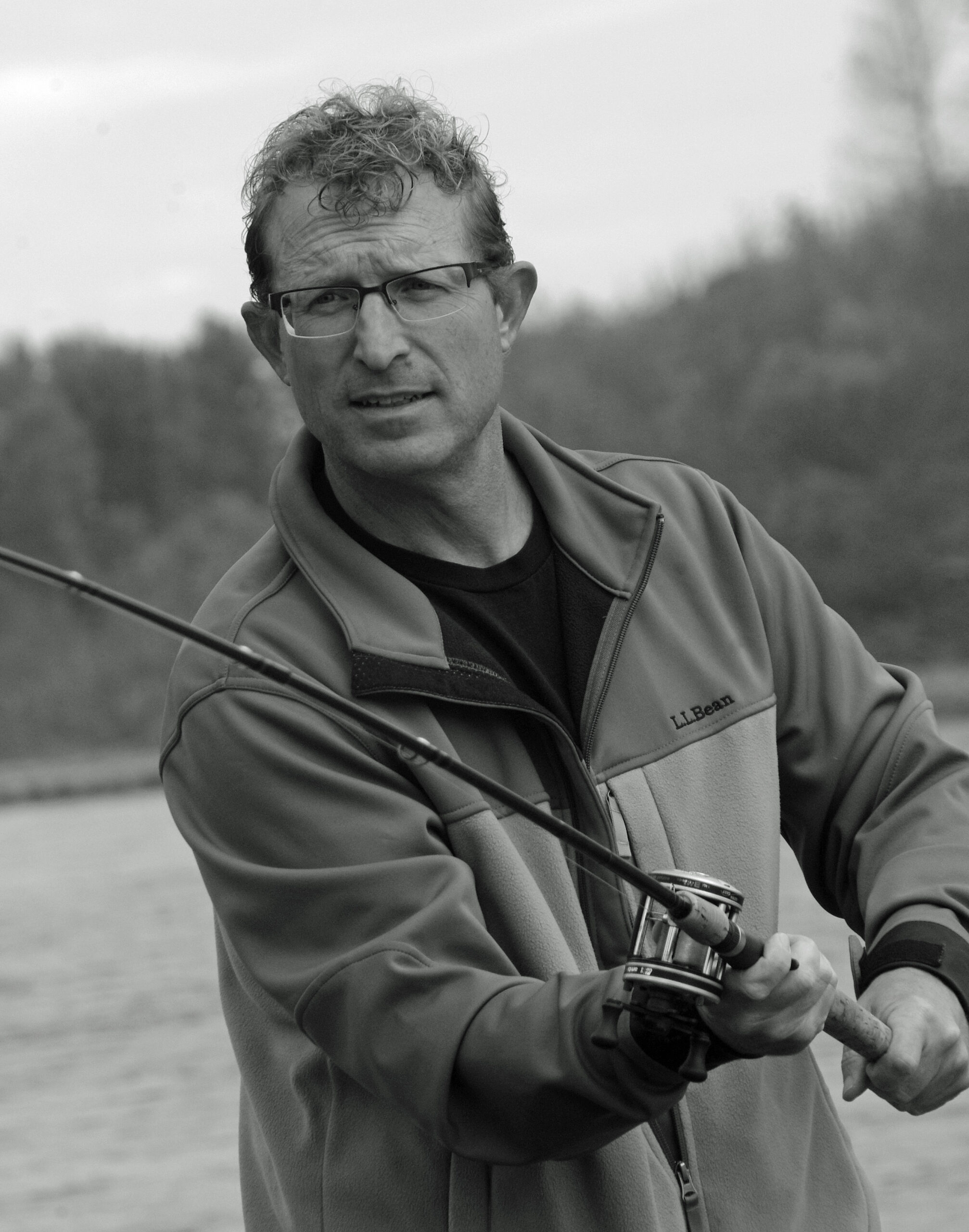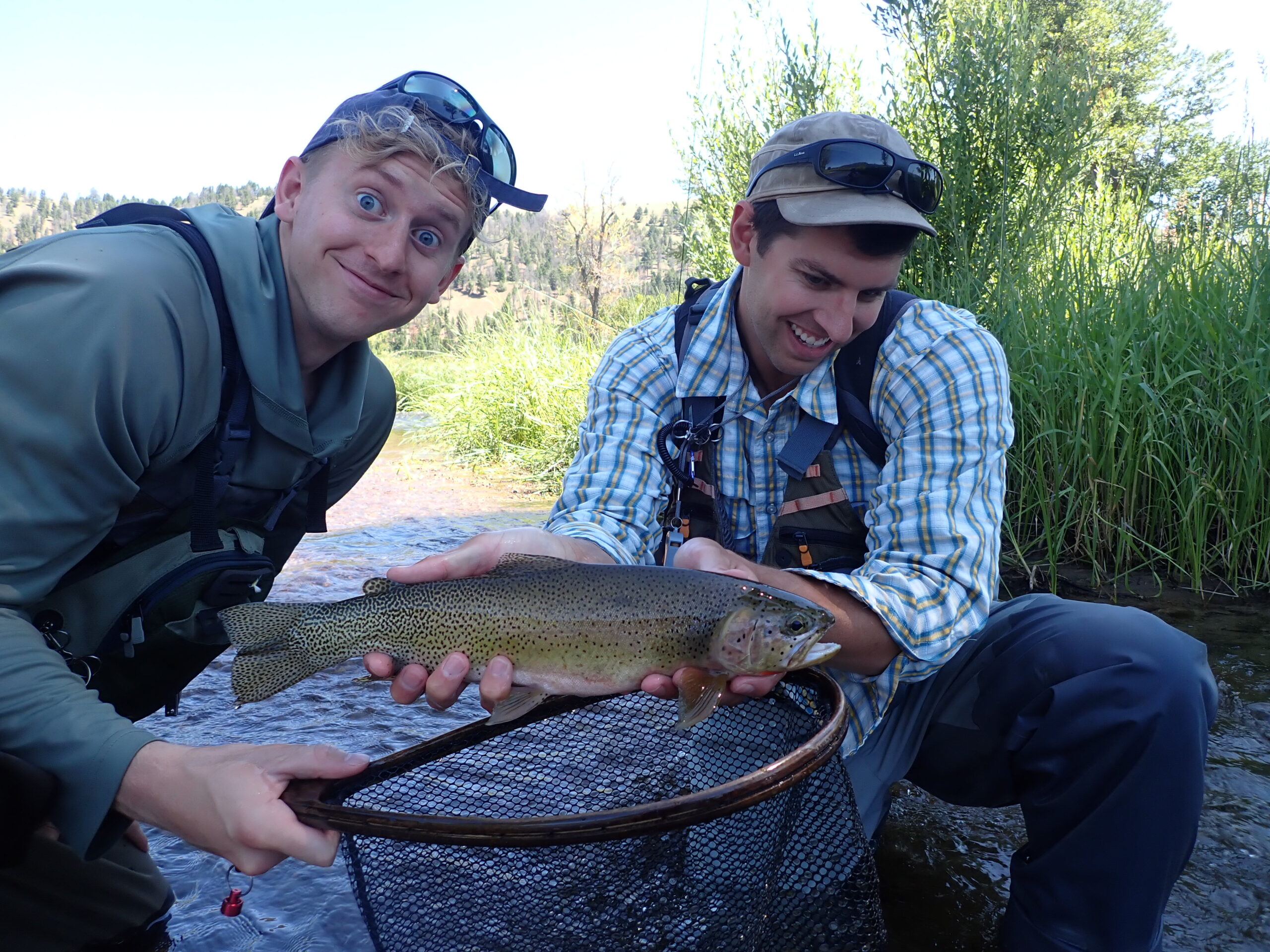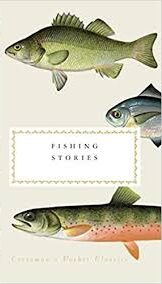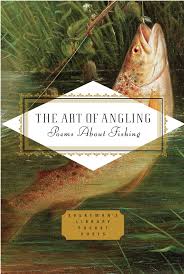A book is a river with many tributaries. Like an angler who never knows where a tributary might lead, or if it is hospitable to fish, an author casts his book to readers he hopes to ‘catch.’ If an author ‘hooks’ a reader, a conversation begins—a dialogue between creative partners. For readers are creative partners in an exchange of imaginations with writers, no less than visual artists with viewers and musicians with listeners. As a writer whose passion straddles fly fishing and literature I desire most keenly to meet readers who swear allegiance to the Fellowship of Literary Anglers.
After Casting into Mystery was released, I contacted a handful of writers I admire who have written about fly fishing in ways that resonate with me. I sent them books with no strings attached. As with angling, some casts proved more fulfilling than others.
I sent a book to Keith McCafferty because I enjoy not only his Sean Stranahan novels but his superb outdoor journalism. I focus on Keith in a chapter in Casting on angling mystery fiction. Keith suggested I contact Henry Hughes, an English prof at Western Oregon University with four poetry collections to his credit.

While younger than me, Henry has fished longer, deeper and in many more places than I will ever fish. I knew him as the editor of the Everyman’s Library companion anthologies The Art of Angling: Poems about Fishing and Fishing Stories. He has also published a range of articles and reviews in Antioch Review, Harvard Review and Gray’s Sporting Journal among others, and is a deputy editor of The Flyfishing & Tying Journal.
Joining Thomas McGuane, Jeremy Wade, James Prosek and Canadian angling historian Richard Hoffman among others, Henry presented Montana State University Library’s 2019 Trout and Salmonid Lecture, evocatively titled the ‘Sensual Fish.’ With intellectual curiosity and learning, not to mention humour, he explores a wide range of literature, art and popular culture spanning the centuries. (If for some crazy reason, you don’t think fish are sexy, check out the lecture on the MSU website.)
When I learned that Henry had also written an angling memoir, Back Seat with Fish: A Man’s Adventure in Angling and Romance, I searched online book dealers and scooped up a copy—which I devoured and thoroughly enjoyed. While I view Casting into Mystery as a Portrait of the Angler as an Old Man, Back Seat with Fish strikes me as a Portrait of the Angler as a Young Man. It chronicles his angling and romantic adventures from childhood through adulthood which takes him from America’s East Coast to fascinating places in the far corners of the globe, especially the countries and cultures of East Asia.
If I was going to compare Henry’s joyously picaresque memoir, brimming as it does with sex, death and fish, to the work of another ‘angling’ writer it would be David James Duncan. When it comes to fishing Henry’s tastes are catholic. He views the recreational sport as transcending the boundaries of race, ethnicity, gender, class and status. In the years covered by Backseat he was primarily a bait and hard lure angler. Like me, he came to fly fishing later. Now he enjoys angling with vintage bamboo fly rods.
Over the past few months I have exchanged many lively emails with Henry. His praise of Casting into Mystery has been deeply gratifying to both me and Wesley Bates, who produced more than three dozen engravings for our book which is intended as a co-creation.
I would like to share some of Henry’s observations:
‘Casting into Mystery just arrived and is truly a beautiful object to behold. I wasn’t sure they made books like this anymore. I’m a huge fan of wood engraving–Paul Gentry, Barry Moser–and now, Wesley Bates. Stunning images.
Later, he wrote:
‘I’m halfway through Casting Into Mystery–and I love it. You’ve read and understood so much of the great angling tradition, and the experiences and the characters in your life are vividly and gracefully rendered. It’s a remarkable work . . . Wesley is a master engraver and deserves more recognition in the States. And you’re one helluva of a writer.’
Like so much of my experience as a fly angler, synchronicity came a-calling. About the time he was reading Casting, Henry was contacted by Peter Hubbard, an editor at HarperCollins, and John Maclean, son of Norman Maclean, author of A River Runs Through It, in my estimation the best ‘fly fishing’ work in the literary canon.
HarperCollins is planning to publish John Maclean’s memoir, Home Waters, which is a personal history of his family and their rivers, and the publisher and author were looking for an ideal artist to illustrate the book. On Henry’s recommendation, Peter contacted Wesley and, with John’s approval, reached a deal with Wesley, who spent his childhood in the same town Wallace Stegner celebrates in his masterwork (in my opinion) Wolf Willow.
Henry subsequently wrote:
‘I’ve nearly completed Casting Into Mystery. Damn, you’ve read everything. I thought I know the genre but I’ve jotted down new works to explore. You’re my professor.’ (The last sentence continues to make me blush.)
‘Like Walden, the book is nicely divided into seasons, seamlessly sewing your transcendental philosophy of life into these rich stories. There’s much to admire, but let me say I appreciated the attention given to women anglers and writers. I’m glad you point out that Trump doesn’t fly fish. I hate Trump (as do I). Then, of course, there’s the celebration of Canada, a nation and culture grossly overlooked in the Americentric literature.
‘Oh, Rob, we share a love for the visual arts and whiskey (spelled without an ‘e’ in Canada and Scotland), though you’re much more of a connoisseur, and I love your unabashed old fashioned ways. Although I don’t own a precious Sweetgrass, I often fish vintage cane. And although my job forces me to use some technology (and I appreciate the ease of email), I hate online teaching and this obsession with cell phones. People are plugged in to technology and out of touch with the woods and waters. But not you! And not your friend, Gary Bowen—I sure admire his unpretentiousness.
‘The Tom Thomson chapter fascinated me. I’ve long admired his painting and knew the basics of his life, but now I feel informed. Wesley’s engraving is haunting. It would be spiritually moving to fly fish on Canoe Lake and pay respects to Tom, as you and Dan did.’
The email Henry sent after he finished Casting speaks for itself:
‘I finished Casting Into Mystery and my list of delights and shared passions continues: alternative religion, Jim Harrison, cigars, surprising walleye, Bruce Springsteen, pro-union sentiments, Tom McGuane.
‘Thanks again for writing and giving me your book. I’m quoting you in my essay about the illustrations in A River Runs Through It which will appear in The American Fly Fisher (published by the American Museum of Fly Fishing). Your comments on the connections between wood engraving and fly fishing were so insightful. And I’ll talk up your book to lots of people.’
After the Casting into Mystery website was up and running I emailed a link to Henry. He responded with enthusiasm and generosity:
‘The website is beautiful, like all the things you make and I’m honoured to be quoted,’ he said, adding, ‘I hope your book is getting the readers and attention it deserves.’
One of the people to whom Henry ‘talked up’ our book was Noah Davis, a young literary angler.
As Henry and I were exchanging emails, I read some of his literary reviews in the Harvard Review. I found his critical praise of Winterkill, the sixth poetry collection by Todd Davis—who teaches environmental studies, creative writing and American literature at Pennsylvania State University’s Altoona College—especially intriguing. I purchased it from on online bookseller and was so impressed I immediately acquired two more volumes, The Least of These and In the Kingdom of the Ditch. Todd writes in what I would call the contemporary rural tradition which brings to my mind of such poets as Jim Harrison, Mary Oliver, Wendell Berry, not to mention Timothy Murphy and Dan Gerber (both of whom are excellent for being lesser known).
I contacted Noah—whose debut poetry collection Of This River is the sixth book published in the prestigious Wheelbarrow Books Poetry Series administered by Michigan State University—and sent him a copy of Casting. I was delighted when he confirmed that he was, indeed, Todd’s son. The poetic apple doesn’t fall far from the Davis creative tree. After earning his MFA from Indiana University, Noah has moved to Montana to further his education and write about angling and other passions. He has written a review of Casting which is slated for the fall issue of Anglers Journal.
Noah wrote:
‘I really enjoyed the book and I know you must be thrilled to have such a beautiful artifact for all your effort. If I ever have a book as well accompanied as yours I’ll be tickled hahaha.
‘We would be good buddies on the river. Same writers move us. Same good food and drink sate us. And fishing is always something wonderful to help bond. Your Adirondack chapter was very close to home for me. I’ve gone to the ADK every year of my life and my wife, Nikea, and I went there for our honeymoon. Such a good place to social distance. We ate at the Hungry Trout which is indeed one of the great angling restaurants. The roast duck is my favourite.’

Fly anglers have for centuries celebrated the fact that trout prefer to live in beautiful places. Similarly fly angling has introduced me to many wonderful people—some of whom I have had the privilege of sharing water. One of the gratifying consequences of writing Casting into Mystery is that it has introduced me to those I praise in the fellowship of literary fly anglers. Talk about casting to ever-expanding riseforms.
In 2013, when Fishing Stories was released two years after The Art of Angling, I wrote this pocket review for the KW Flyfishers’ newsletter:
One of the neat things about Art Flick’s classic Streamside Guide to Naturals and Their Imitations is that it fits inside the pocket of a fishing vest.
I don’t suspect many fly anglers take books along on angling outings—a practice I highly recommend. However, if you are inclined to do this on occasion–as accompaniment in anticipation of an evening hatch or as a companion during a bankside sandwich and beverage break–I have a couple of books small enough to fit into a fishing vest.

The Art of Angling is a bountiful catch of poems from around the world devoted to all aspects of fishing. As its title suggests, Fishing Stories is an equally abundant catch of prose in various styles and genres.
Both are published in Knopf’s Everyman’s Pocket Classics series. Separately, each collection contains a wealth of piscatorial writing. Together, they comprise a handsome set of companion volumes.
As Henry points out in his scholarly forwards, the origins of fishing extend into the distant past, at least as far back as the Upper Paleolithic period (early phase of the Stone Age which began about 40,000 years ago and lasted about 2.5 million years). I have always viewed a fly rod as a Paleolithic tool.
Although there is some debate, most angling historians credit the first recorded description of an artificial fly to the Roman Claudius Aelianus, near the end of the second century. Writing about fishing emerged in the ancient civilizations of Greece, Rome and China (the latter of which Henry has a refined eye and ear). The Old Testament mentions fishing with a hook.
The Art of Angling contains poems, verse passages and prose fragments dating back to the Classical poet Homer, circa 800-850 BC. As confirmed by this charming piscatorial anthology, many of the world’s greatest authors wrote about fishing in one capacity or another.

Shakespeare, John Donne (Izaak Walton’s regular angling companion), Alfred Lord Tennyson, Robert Service, William Butler Yeats, Ted Hughes, Robert Lowell, James Dickey, Derek Walcott, Raymond Carver, Ron Rash, John Engels, Theodore Roethke, Richard Brautigan, James Wright, Richard Hugo and Jim Harrison are just a few of the most famous poets represented. Female poets are not plentiful but they are not forgotten, including Margaret Atwood, Elizabeth Bishop and Mary Oliver, among others.
Although the anthology isn’t confined to poems about fly fishing, anglers who cast lines on wider waters and are interested in the history and literature of fishing will welcome the volume.
The same can be said of Fishing Stories. Admittedly, there are numerous collections of classic fishing prose narrative, both fiction and non-fiction, whether short story, novel, biography or memoir. Similarly, there is considerable repetition among volumes.
There is some redundancy here, with many of the familiar suspects represented including Zane Grey, Hemingway, Roderick Haig-Brown, Norman Maclean, Thomas McGuane and Nick Lyons (one of the most significant publishers of fly angling literature, ever). But, there are also wonderful surprises: Anton Chekhov, Annie Proulx and Jimmy Carter, amidst settings as varied as ancient China, tropical Tahiti and Paris, in addition to the wilderness country bridging both sides of the 49th Parallel.
I began my fly fishing journey in an armchair with book in hand, and a dram of malt whisky within reach. Had I not been enchanted by the rich literary history of the contemplative recreation I would have never made the transition from spinning rod and hard lures to bamboo and fur and feather. The Art of Angling and Fishing Stories–in my estimation, the best of the many angling anthologies available along with The Magic Wheel, edited by David Profumo and Graham Swift–are reminders of why I’m proud to consider myself a literary fly angler.